The OSCP Training course, “Penetration Testing with Kali Linux (PWK),” is an online, self-paced program offered by Offensive Security. It trains participants to identify, exploit, and report on security vulnerabilities across networks and systems, focusing on ethical hacking and penetration testing. The course includes access to labs, video lectures, and course material, and culminates in a 24-hour certification exam. The Offensive Security Certified Professional (OSCP) course, officially called “Penetration Testing with Kali Linux (PWK),” is an advanced certification program in cybersecurity offered by Offensive Security. Known for its rigorous, hands-on approach, the OSCP course trains participants in ethical hacking and penetration testing skills, covering techniques used to identify, exploit, and report on security vulnerabilities across networks and systems. To earn the OSCP Certification Training, students must pass a 24-hour practical exam in which they hack into a series of target machines within a controlled environment, documenting each step and method used. This intense, hands-on approach makes the OSCP one of the most respected certifications in the cybersecurity field, demonstrating to employers that candidates have real-world penetration testing abilities and persistence in tackling complex security challenges.
 Top Ranked Cyber Secuirty Course By HACKING TEACHER
Top Ranked Cyber Secuirty Course By HACKING TEACHER


































AI Powered Full Stack Web Development Course
Learn AI powered web development and futureproof your career to lead in an AI dominated tech industry.
Before starting the OSCP (Offensive Security Certified Professional) course, it’s essential to have a solid foundation in networking, operating systems, and basic cybersecurity concepts. OSCP is a challenging course focused on hands-on penetration testing, so understanding the basics is crucial for success.
A strong grasp of networking fundamentals is essential, including knowledge of IP addressing, subnetting, TCP/IP protocols, and network configurations. Familiarity with Linux is also key, as the OSCP is based on Kali Linux, a Linux distribution tailored for penetration testing. Skills in navigating the Linux command line, using Bash scripts, and handling file systems and processes will be invaluable.
Basic scripting knowledge—especially in languages like Bash and Python—enhances your ability to automate tasks and exploit vulnerabilities. Experience with Windows systems is also beneficial, as the OSCP covers Windows security as well as Linux. Having a background in cybersecurity basics, including common vulnerabilities (like SQL injection and cross-site scripting) and security tools (such as nmap, Metasploit, and Wireshark), is beneficial.
For those new to cybersecurity, certifications like CompTIA Security+ or Network+ can provide a good foundation, preparing candidates for OSCP’s demanding and hands-on learning experience. Basic familiarity with networking, Linux, and cybersecurity fundamentals is essential. You should understand concepts like TCP/IP, VPNs, firewalls, and experience with the command line. Prior knowledge of scripting (like Bash, Python, or PowerShell) is also beneficial. OSCP is challenging, so beginners may consider starting with foundational certifications like CompTIA Security+ or CEH (Certified Ethical Hacker) first.
































Highest Salary
Average Salary
Hiring Partners


+ Unlimited Pwnbox usage
+ CPE credits submission
+ Unlimited Pwnbox usage
+ CPE credits submission
+ Unlimited Pwnbox usage
+ CPE credits submission
+ Unlimited Pwnbox usage
+ CPE credits submission
The Hacking Teacher Certification teaches educators about teaching ethical hacking and cybersecurity with the proper skills. This program offers extensive training on some of the most technology pressing issues facing the cyber security world today including penetration testing, threat analysis and secure coding. It is ideal for IT professionals and trainers to ensure that all knowledge is transferred for audiences to inspire the next generation of cybersecurity experts.

We focus on essential exploiting topics such as SQL Injection, Wireless Networks, IoT Hacking, Cloud Computing, social engineering, sniffing, and session hi jacking.










Enterprise Attack Simulation Training is an opportunity to practice simulating cyberattacks against corporate networks on a hands-on basis. Participants learn how to find vulnerabilities, to exploit weaknesses and to evaluate system defenses using advanced tools and methodologies.
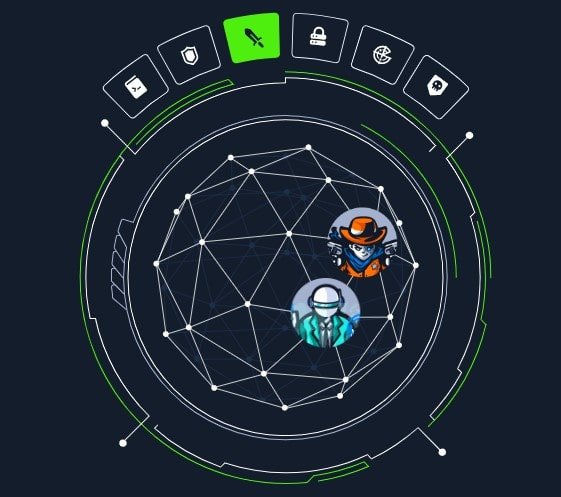
The practice is in live, not simulated virtual IT labs built according to the leading vendors certifications, including: Apart from these CompTIA, Microsoft, Cisco, VMware etc." Our labs were designed to be interactive, and targeted towards a lot of real world experience so learners can hone their practical skills. We work with subject matter experts on networking, security, cloud computing and more, and we create and deliver labs based on these core IT competencies.

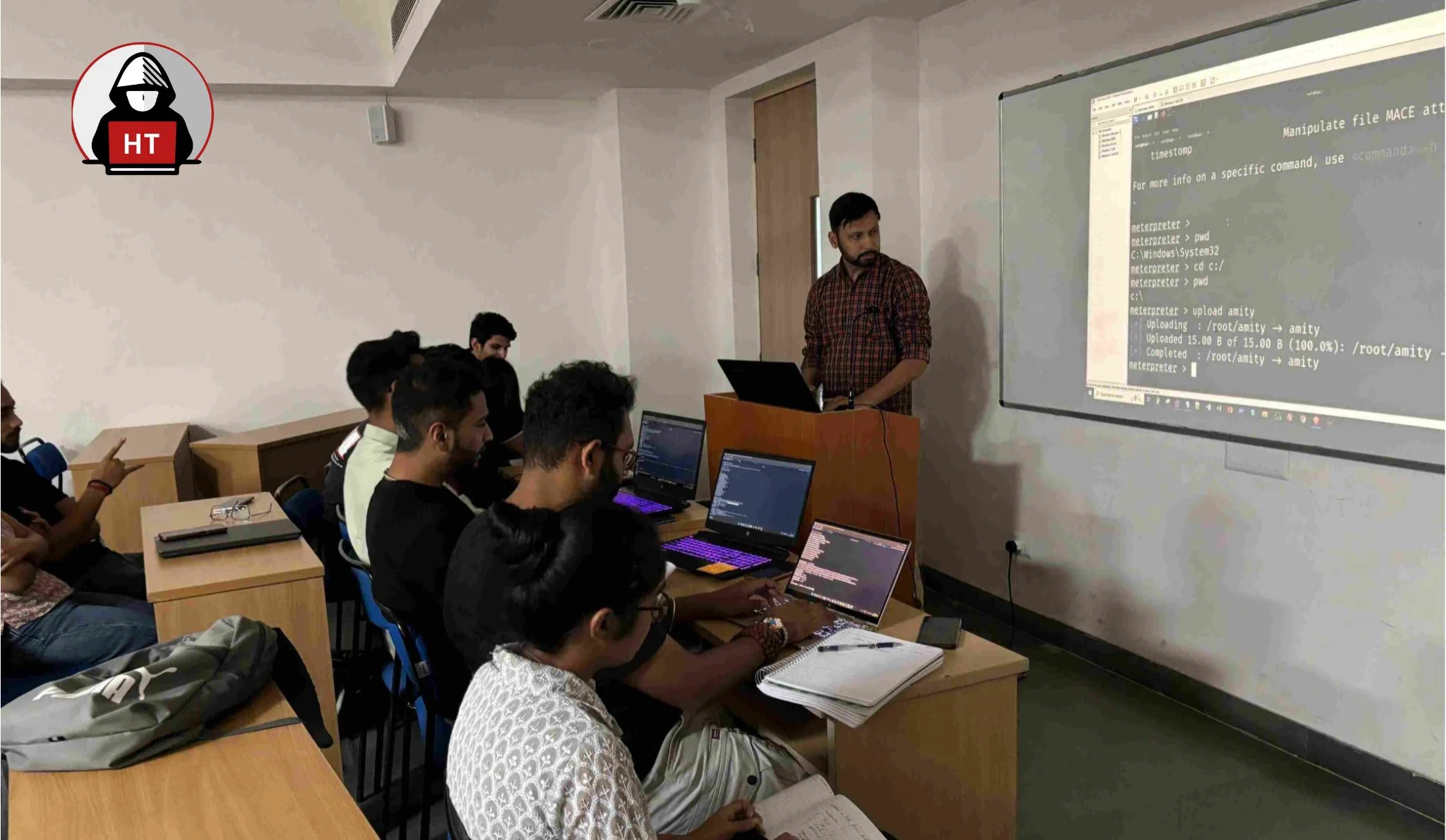
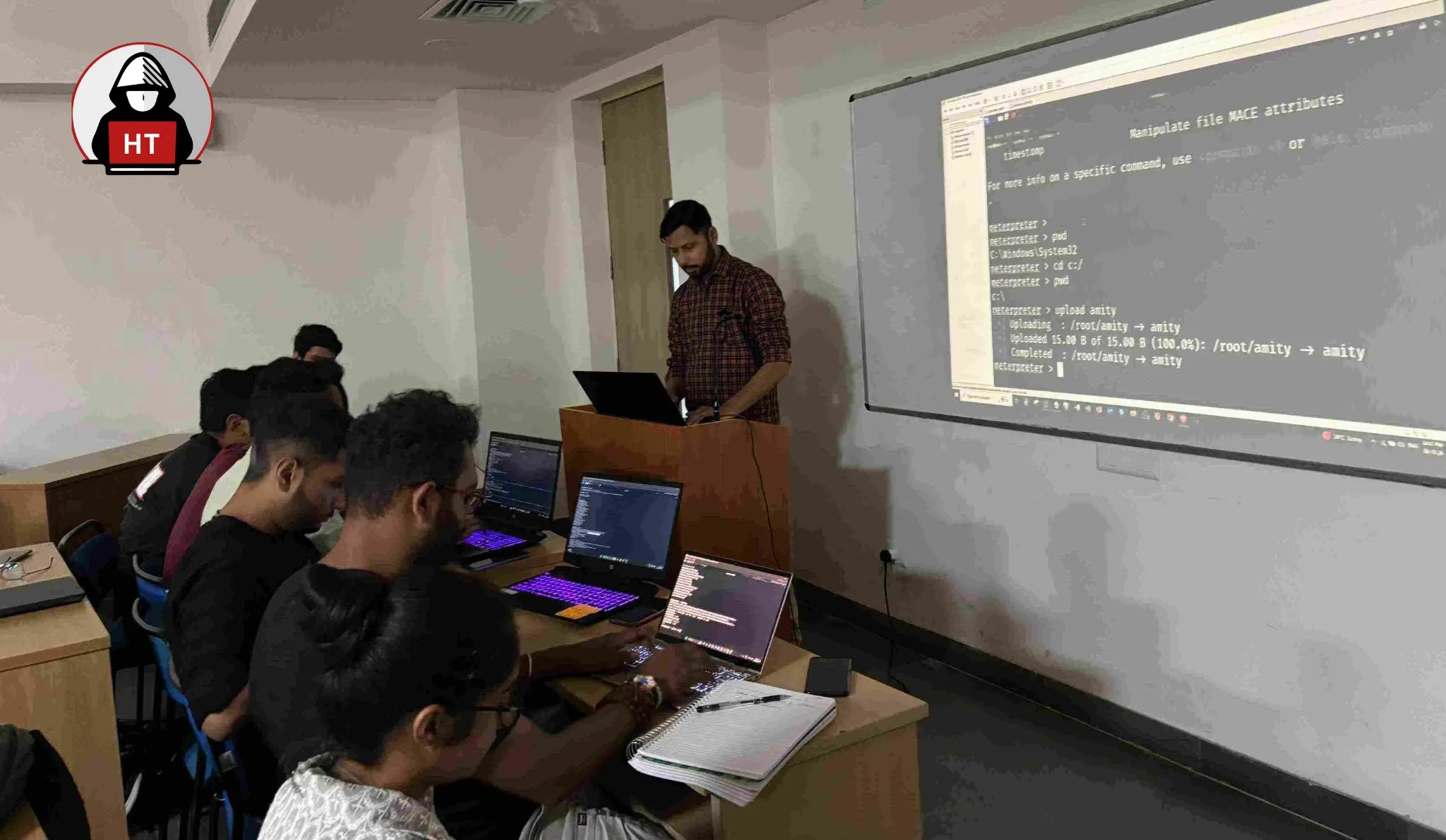
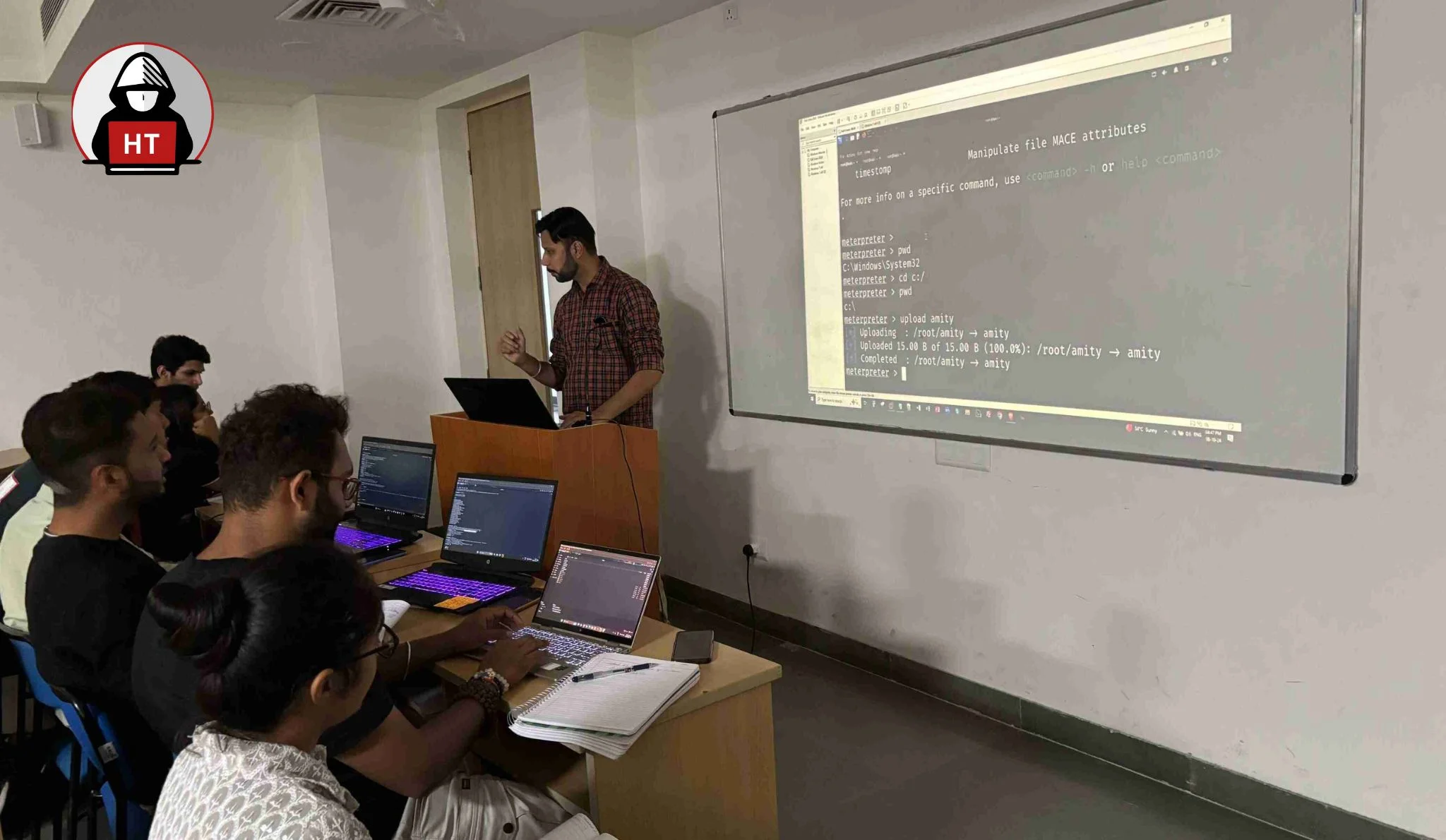
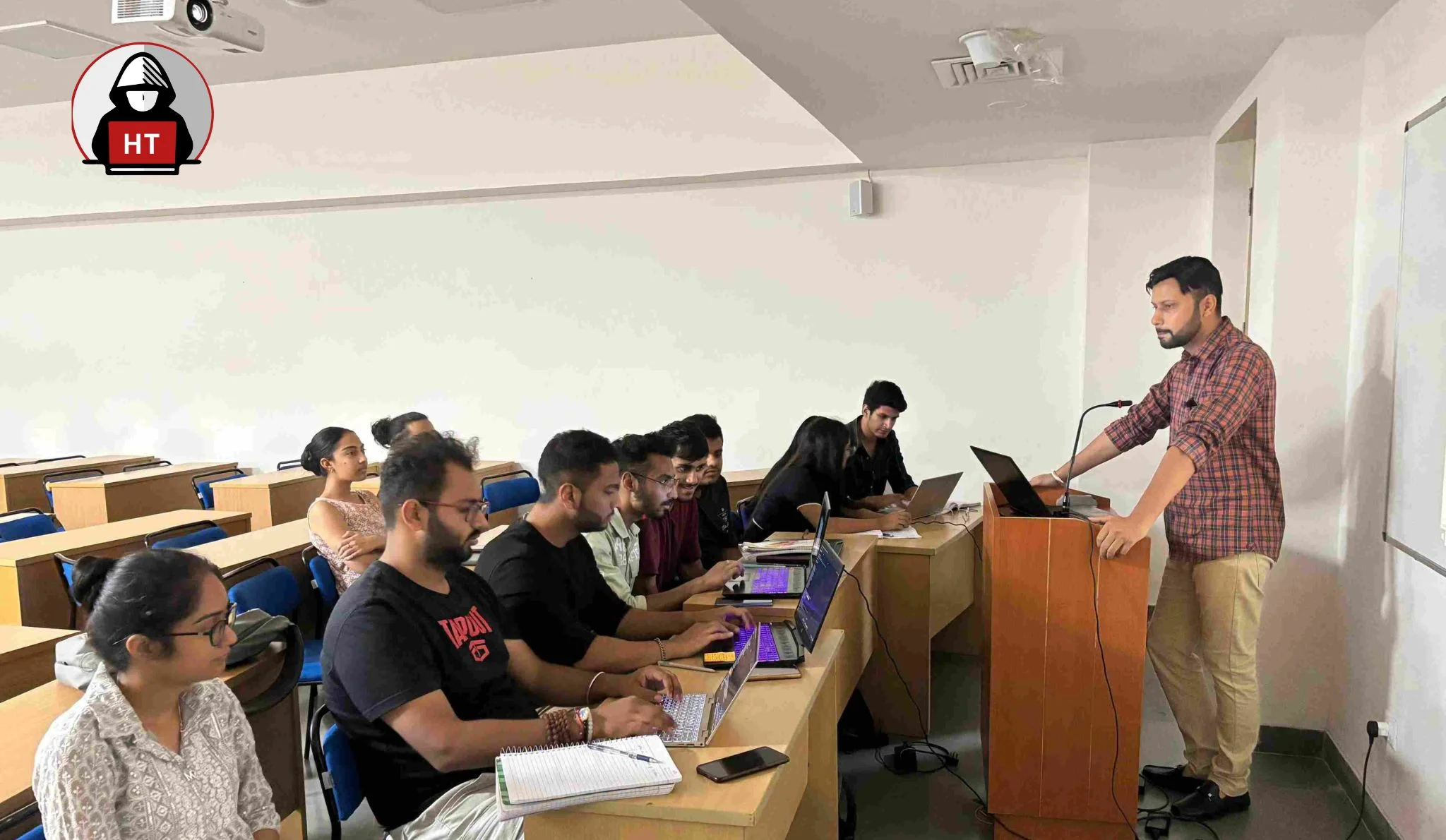
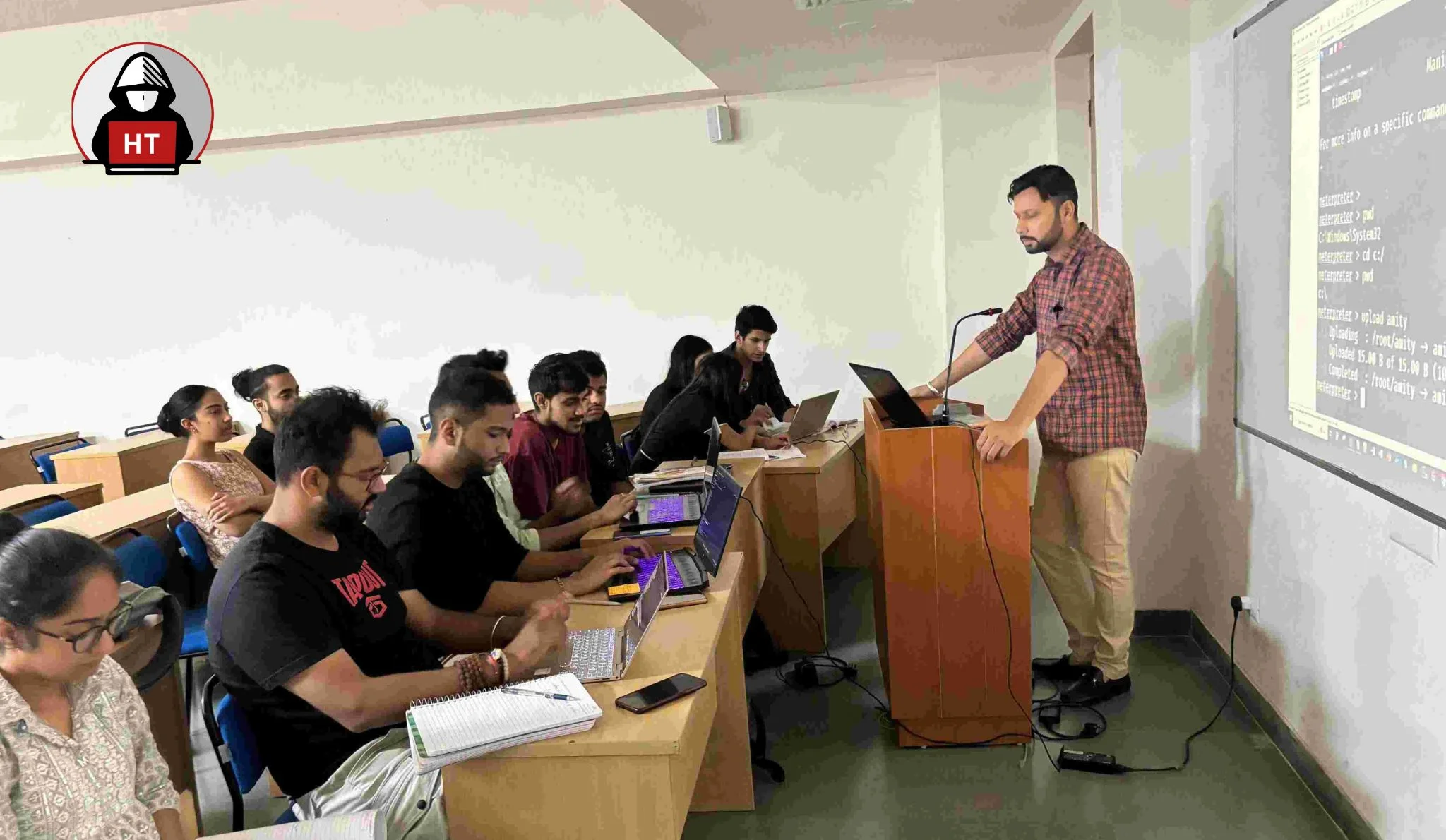
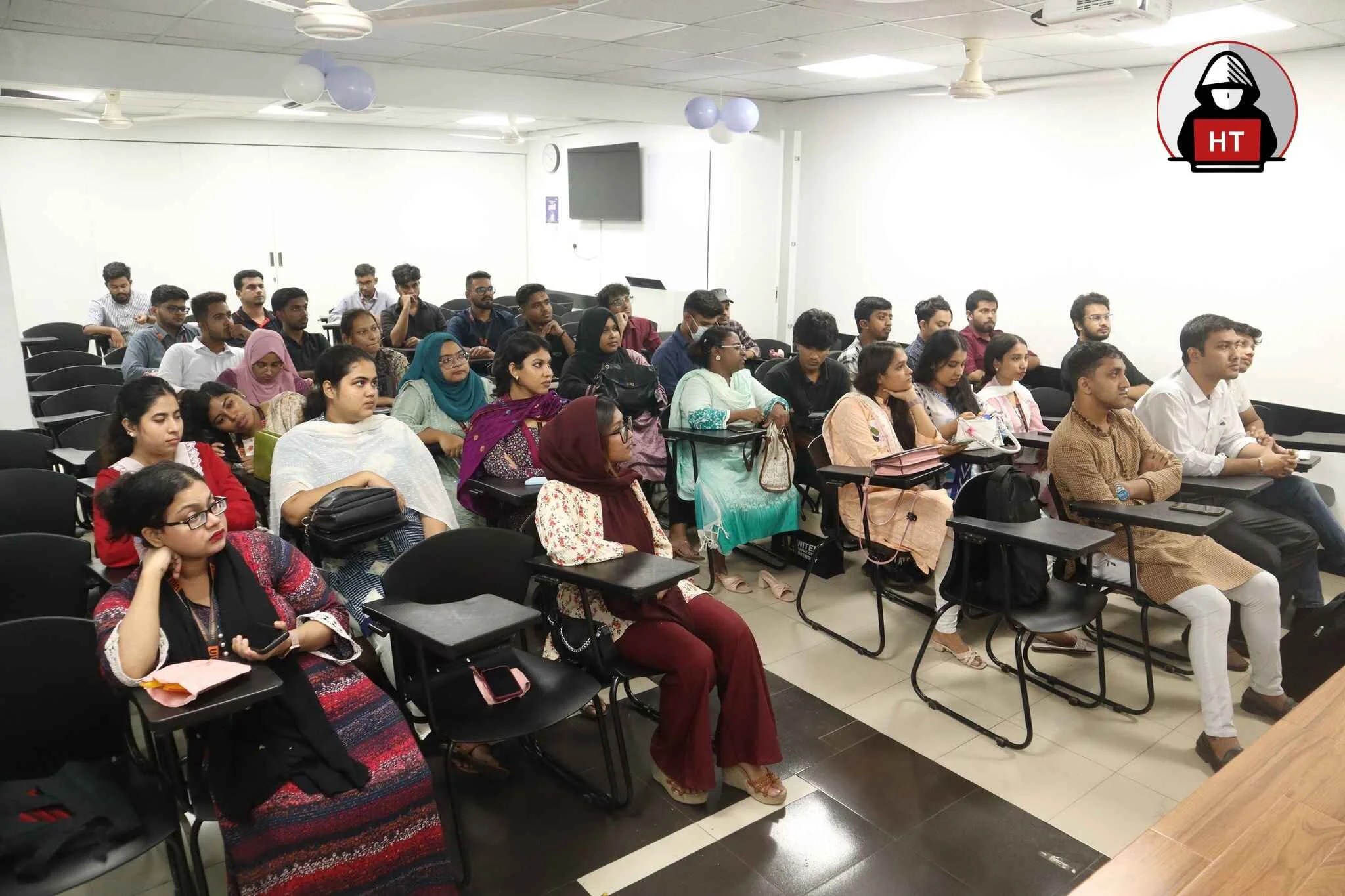
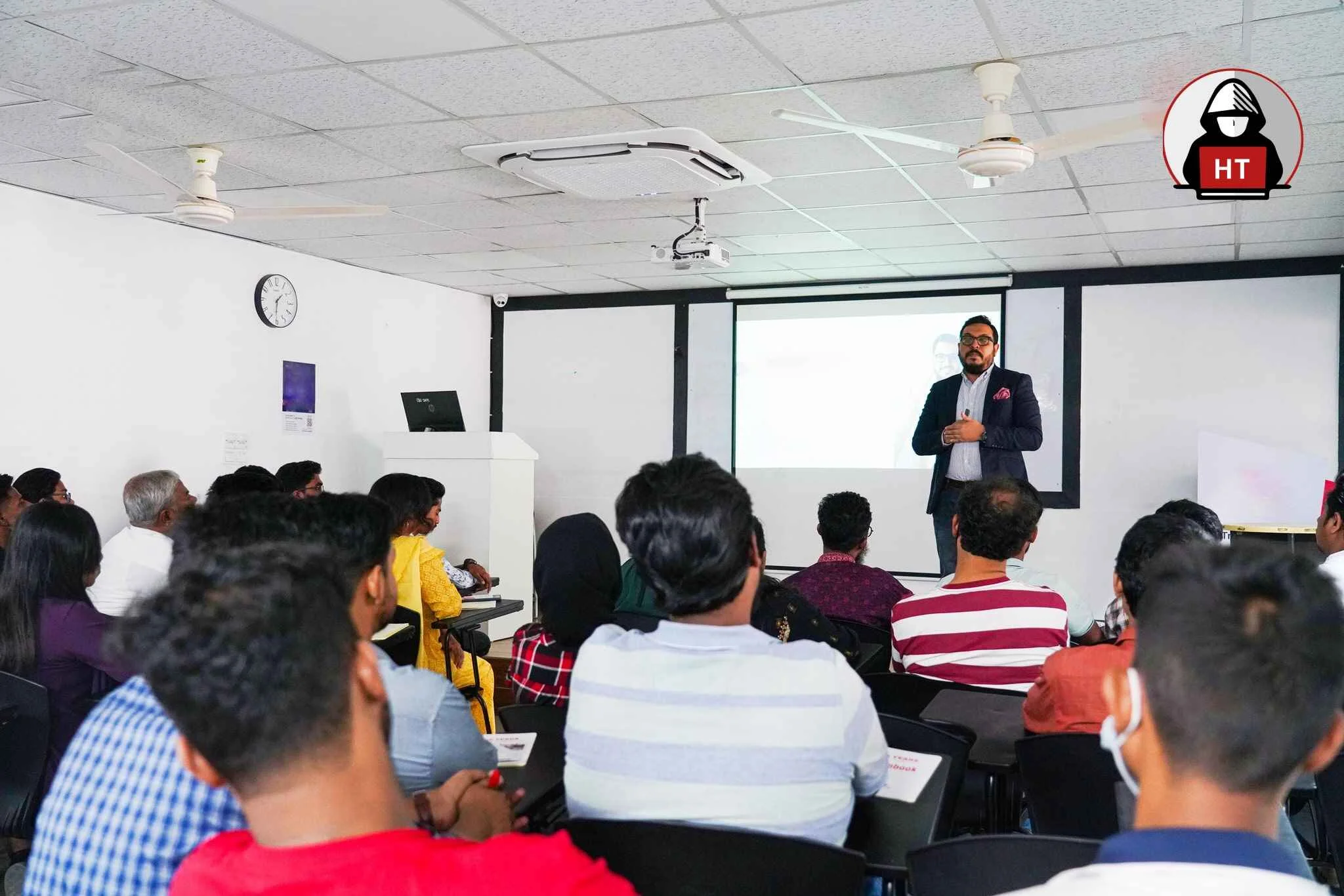
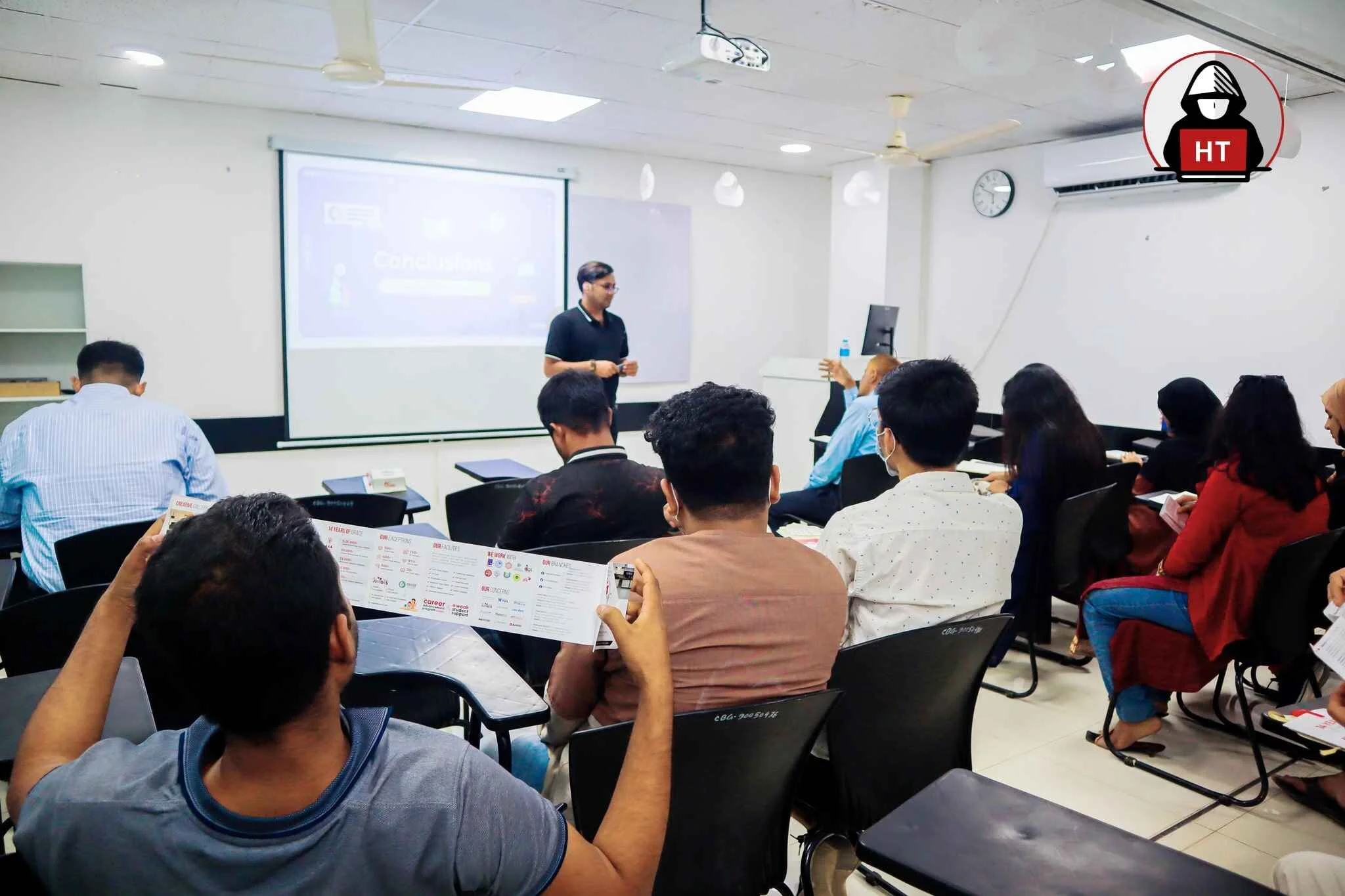

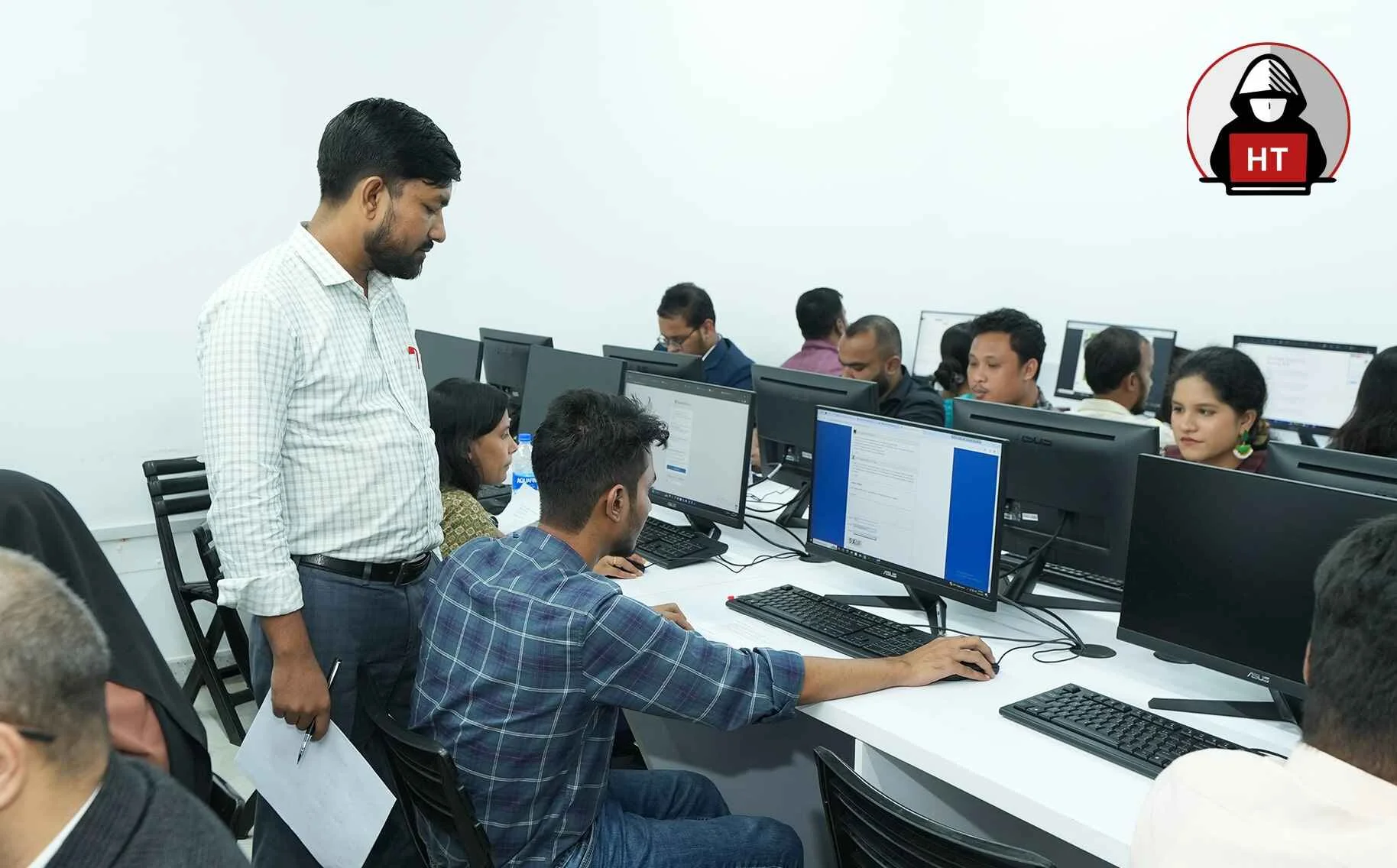
Hacking teacher Learning is here to ensure that you don’t get left behind in a world of technology that is too quickly changing. On a day to day basis, we’re recording and sharing content that can impact your bottom line.

OSCP training is often considered a benchmark for intermediate to advanced cybersecurity practitioners. It is suitable for individuals with a foundational understanding of networking and systems, as well as those with basic familiarity with Linux and command-line interfaces. The training includes modules that build knowledge on a variety of topics such as information gathering, buffer overflows, privilege escalation, and exploitation.
The course encourages learners to think like attackers, a mindset essential for discovering and exploiting security weaknesses in computer systems. OSCP training does not rely heavily on step-by-step guides, requiring students to apply their knowledge independently, which encourages a process of self-learning, problem-solving, and persistence. This approach reflects real-world conditions where penetration testers face unique, unstructured challenges, thus making OSCP holders well-prepared for real-life scenarios.
OSCP Training (Offensive Security Certified Professional) is an advanced, hands-on course designed for individuals who want to pursue a career in penetration testing and ethical hacking. Offered by Offensive Security, the training focuses on real-world hacking techniques, teaching students how to identify, exploit, and report on vulnerabilities within a controlled environment.
The OSCP course, officially called Penetration Testing with Kali Linux (PWK), provides in-depth training on penetration testing tools, vulnerability scanning, exploitation techniques, privilege escalation, and post-exploitation. The course is structured around video lectures, written materials, and a virtual lab environment where students can practice on real systems simulating different network scenarios. These labs allow students to test their skills on vulnerable machines, providing hands-on experience in a safe, controlled setting.
One of the key highlights of OSCP training is the lab environment provided by Offensive Security, which includes a vast network of deliberately vulnerable machines. The labs are designed to mimic a corporate environment with various types of machines, services, and configurations that students can explore and exploit.
The OSCP labs serve as the training ground where students can experiment with attacks, gain shell access, escalate privileges, and pivot through networks. Each machine in the lab environment presents a unique challenge, often involving multiple layers of security measures that require deep analysis and sophisticated exploitation techniques. The experience gained in the labs is invaluable, as it exposes learners to a wide variety of real-world vulnerabilities and exploitation techniques that are critical in cybersecurity.
Students must navigate through different scenarios, which include bypassing firewalls, gaining initial access, maintaining persistence, and achieving full compromise. This extensive hands-on practice is the backbone of the OSCP training, instilling practical skills and boosting confidence in the participants.
The OSCP (Offensive Security Certified Professional) training offers several key highlights that make it one of the most respected certifications in cybersecurity:
1. Hands-On Learning: The OSCP course is renowned for its practical, real-world approach to penetration testing. Students gain access to virtual labs with machines designed to mimic real-world systems, allowing them to practice penetration testing techniques in a controlled environment.
2. Comprehensive Curriculum: The training covers a wide range of topics, including information gathering, vulnerability analysis, exploitation, privilege escalation, and post-exploitation. Students also learn how to use popular penetration testing tools like Metasploit, Burp Suite, and Nmap.
3. Self-Paced Learning: The course is designed for flexibility, allowing students to progress at their own pace. With 30, 60, or 90 days of lab access, students can dedicate the time they need to master the skills and concepts before taking the final exam.
4. Realistic Exam: The OSCP exam is a 24-hour practical test that requires students to compromise multiple machines and submit a detailed report. This hands-on exam mirrors the challenges professionals face in the field.
5. Industry Recognition: OSCP is highly regarded in the cybersecurity industry, demonstrating practical, in-depth knowledge and problem-solving skills, which are valuable to employers looking for skilled penetration testers.
There are no official prerequisites to take the OSCP certification training, but it is recommended that candidates have a strong foundation in networking, Linux, and basic scripting languages like Python or Bash. Familiarity with basic penetration testing concepts and tools such as Nmap, Netcat, Metasploit, and Wireshark is also beneficial. .
Candidates should be comfortable with concepts such as TCP/IP networking, system administration, and common vulnerabilities, as these skills are essential for navigating the training and the exam.
Offensive Security’s PWK (Penetration Testing with Kali Linux) course, which includes access to a virtual lab environment, is designed to prepare candidates for the OSCP exam and is typically recommended as part of the training. The PWK course is self-paced, allowing candidates to practice penetration testing on a range of virtual machines and hone their skills prior to the certification exam
As of the latest updates, the OSCP certification package, including the PWK course and exam voucher, typically costs around $1,499 for 30 days of lab access, $1,699 for 60 days, and $1,899 for 90 days. The course includes access to the PWK lab environment, an extensive PDF training guide, and videos.
These prices can vary slightly depending on the level of lab access purchased, as candidates have the option to extend their lab time for an additional fee if they require more practice.
There may also be occasional discounts or promotions offered by Offensive Security, but generally, the cost of the OSCP certification is considered a worthwhile investment for those looking to build a career in cybersecurity, as it opens doors to numerous opportunities and potential salary increases.
The time required to obtain an OSCP certification varies depending on the candidate’s prior experience and available study time. For individuals with some background in cybersecurity, the PWK course typically takes around two to three months to complete, with an additional month of focused practice and review before taking the exam.
Those new to penetration testing may need to spend closer to four to six months to develop the necessary skills and confidence. The OSCP exam itself is a 24-hour practical exam, but candidates must also complete a penetration test report, which can add several more hours..
In total, the journey from the start of the PWK course to passing the OSCP exam can range from a few months to over half a year, depending on the candidate’s dedication and the amount of time they can devote to study and practice
As of now, the OSCP certification does not have a renewal requirement, meaning once an individual earns the certification, it is valid indefinitely. However, the field of cybersecurity is constantly evolving, and Offensive Security regularly updates its course materials to reflect new tools, techniques, and attack vectors.
While the OSCP certification itself does not expire, many professionals in the field choose to pursue additional Offensive Security certifications, such as the Offensive Security Certified Expert (OSCE) or Offensive Security Web Expert (OSWE), to continue advancing their skills and maintain relevance in the rapidly changing cybersecurity landscape. Continuing education, hands-on practice, and keeping up with emerging threats are essential for any OSCP holder to stay competitive and effective in their role

Interview wifi Hacking

Life of Hacking Teacher
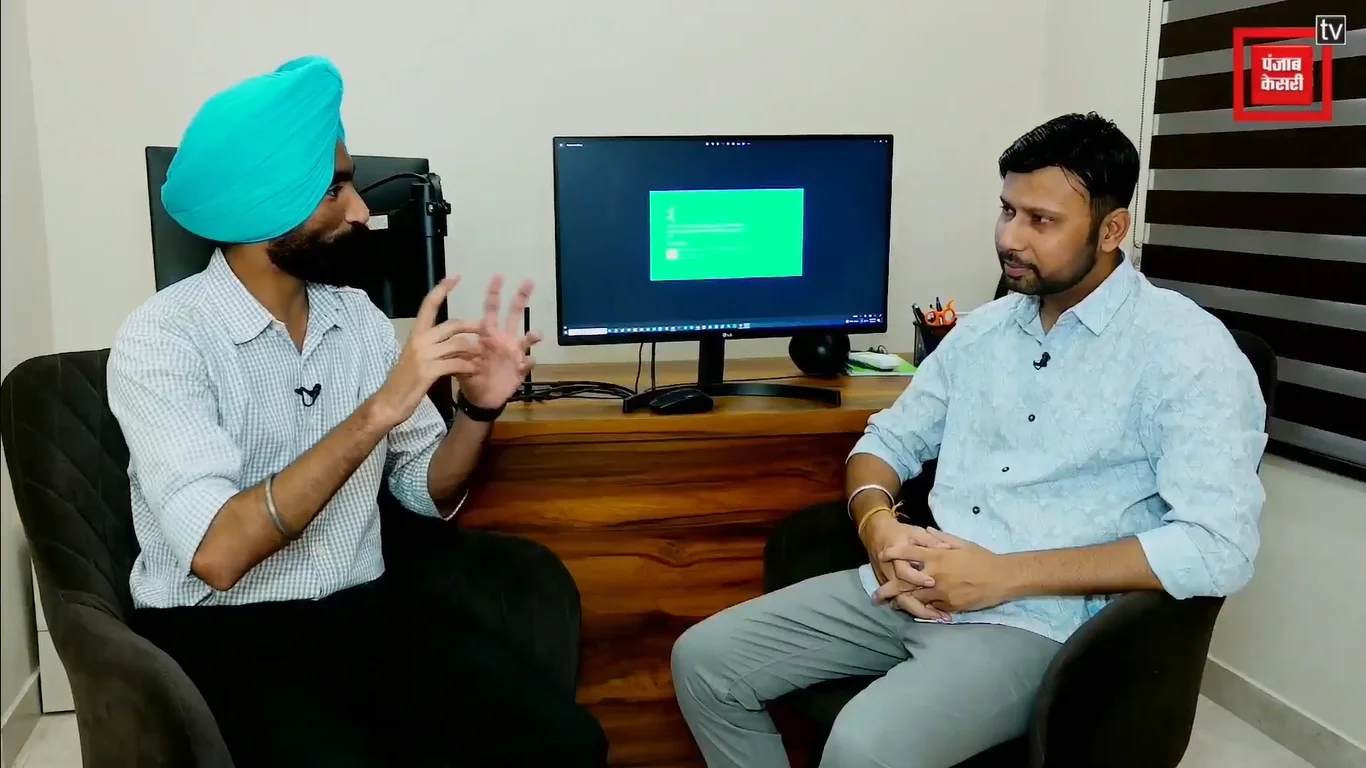
Microsoft on Vishal Sharma

Software Engineer at TechPulse
“OSCP (Pentesting with Kali) course: Intense and invaluable! Instructors’ expertise and hands-on labs prepared me well for real-world challenges. Highly recommend!”

Software Engineer at ByteWise
“Impressed with OSCP (Pentesting with Kali) course! Instructors’ support and practical curriculum made learning engaging. Prepared me for certification exam.”

Data Analysis at NovaSphere
“OSCP (Pentesting with Kali) course was top-notch! Instructors’ knowledge and real-world experience shone through. Hands-on labs were invaluable. Highly recommended!”
FAQ
Our online courses are tailored to your specific needs, whether you are an experienced senior executive or a rookie leader.
Lorem ipsum, dolor sit amet consectetur adipisicing elit. Eum laborum qui tempora numquam!
OSCP (Offensive Security Certified Professional) Training is the hands-on course of ethical hacking and penetration testing skills. It is being built to teach practical skills for finding and exploiting vulnerabilities in computer systems.
An OSCP Training course usually spans 1 to 3 months based on mode of learning: self paced or instructor led, and previous experience.
Be it programming or Linux or networking, there are no strict prerequisites, but vaguely you should have an understanding of all of them. It’s also helpful to be familiar with cybersecurity concepts and tools.
Official and best way to prepare for OSCP Training is Penetration Testing with Kali Linux (PWK) course from Offensive Security. It has detailed study materials and a lab environment.
Well, yes, OSCP training can be done in one month, provided that you choose an intensive study plan and spend enough time in the labs learning and practicing.
For training towards the OSCP exam, any diploma that is in cybersecurity including ethical hacking or IT with focus on networking and security will do.
After completing OSCP Training, you can find a career as an Ethical Hacking, Penetration Testing, Cyber Security Analysis, Vulnerability Assessment, and Security Consulting.
The answer to that is yes, it's possible to learn the OSCP Course on your own using the official PWK course and practice labs and also supplement it with books and online tutorials.
For someone who just knows the basics of cybersecurity and networking, the OSCP certification itself is enough.
For OSCP, you have to train yourself as a penetration tester, Linux, networking as well as have some security tools like Metasploit and Nmap.
No formal eligibility criteria; basic knowledge of the networking, Linux and cybersecurity concepts is recommended.
Offensive Security’s Penetration Testing with Kali Linux (PWK) course is regarded as the best OSCP Training.
Yes, OSCP Training is hard, you won’t succeed if you don’t dedicate yourself, have poor problem solving skills, and don’t have any hands-on practice.
To take the OSCP Training Course, you just need to sign up for Offensive Security, where you gain access to their study materials and lab environment.
OSCP training is best done through the official PWK course as it has been specifically made for that certification.